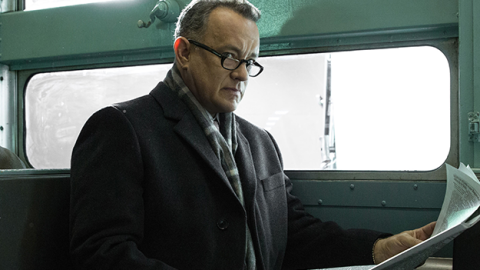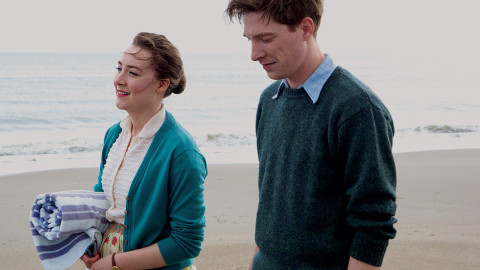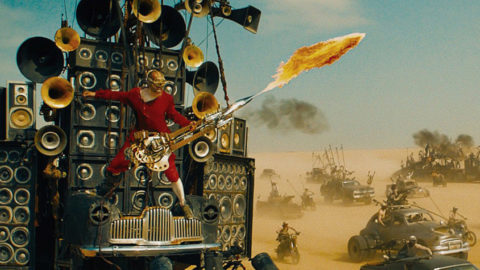Essential Films: Bridge of Spies
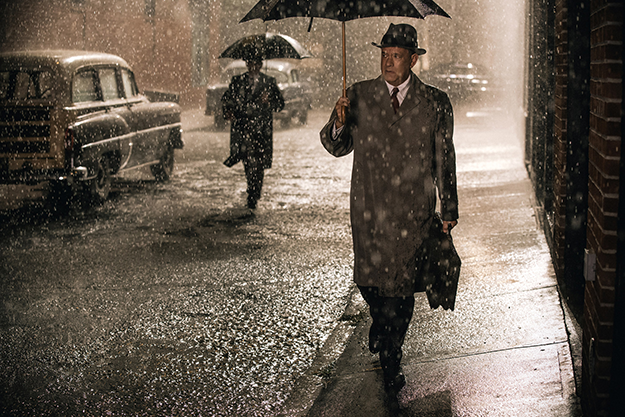
“I didn’t give them anything,” says Francis Gary Powers (Austin Stowell), the downed U-2 spy-plane pilot captured by the Soviets, to James B. Donovan (Tom Hanks), the American insurance lawyer who negotiated his release. “It doesn’t matter,” asserts Donovan. “You know what you did.”
Within the complex narrative of Bridge of Spies, this frequently reiterated idea of goodness as a matter of action as opposed to appearance becomes a touchstone, guiding our way through the dark, thickening forest of Cold War politics. When Donovan, a Manhattan insurance lawyer, is called upon to provide legal representation to a captured Soviet spy named Rudolf Abel (Mark Rylance); when he is asked to travel to East Berlin to negotiate Powers’s release in exchange for Abel; when it is brought to his attention that there is another American named Frederic Pryor (Will Rogers) who has been arrested by the East Germans and whose release must also be negotiated, he agrees. “I’m not sure I want to pick that up,” says Donovan to his legal partner Thomas Watters (Alan Alda), as he glances down at Abel’s indictment, his one brief moment of indecision. From then on, he is a man of action.
Donovan’s sense of the good is one of three such touchstones in the film, all of which come by way of verbal cues. The second is a repeated expression of equanimity from Rylance’s Abel, who’s at every moment animated but inwardly centered and still. On three separate occasions, Donovan asks Abel if he is nervous. Each time he gets the same answer: “Would it help?” Both men—embodied by two actors as physically doughy as they are mentally and technically sharp—firmly believe in the missions of their respective countries, and neither has a lofty sense of his own virtue.
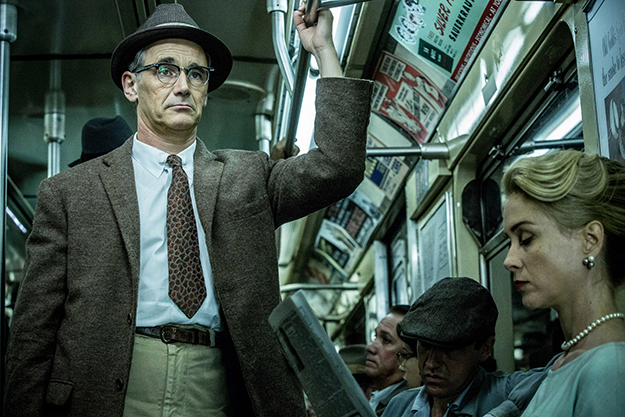
The third touchstone is a series of calculations in response to the tricky contingencies of realpolitik through which the citizen-hero must navigate, and for which we are primed by a funny conversation (that would not be out of place in a film by the co-authors of the screenplay, Joel and Ethan Coen) between Donovan and a fellow attorney named Bates (Joshua Harto). Bates’s five clients have been injured by Donovan’s one client—check that, not his client but a defendant serviced by the insurance company his firm represents. Five clients = five accidents = five claims, insists Bates. To which Donovan retorts: five victims but one accident, so only one claim, otherwise the whole insurance industry goes out the window and no one is safe. When one is acting for the good, calculation is unnecessary, but it can be a useful tool—for instance, in the form of an offhanded reminder to a judge (Dakin Matthews) that, come sentencing time, it might not be a bad idea to avoid the death penalty and keep Abel handy for a possible future prisoner exchange. Three touchstones, three countries, three prisoners—this is an elegant means of dealing with an unusually complicated story.
Like Lincoln, Bridge of Spies plays a lively game of hide-and-seek with the American present, sometimes by means of parallels (between the inflamed anti-Communist rhetoric of the late Fifties and the inflamed anti-immigrant/anti-Obama rhetoric of today) and contrasts: neither Donovan nor Abel trumpet, advertise, or “brand” what they do—they simply do it. However, Steven Spielberg’s film is also an excavation of a dowdier, plainer, and visually darker moment in time, peopled by soft-bodied but iron-willed men in shades of blue and gray who meet in oak-floored wallpapered rooms darkened by cigarette and pipe smoke, men possessed of a weariness that, I suppose, also stands in contrast to the current obsession with sleek, youthful verve. Bridge of Spies is a warm portrait of a friendship, an excitingly intricate story of realistically scaled suspense, and a visually ravishing and lovingly crafted rendering of mid-century America, where how you look matters much less than what you do.
Read more about the year’s best in our Essential Films 2015 supplement.



